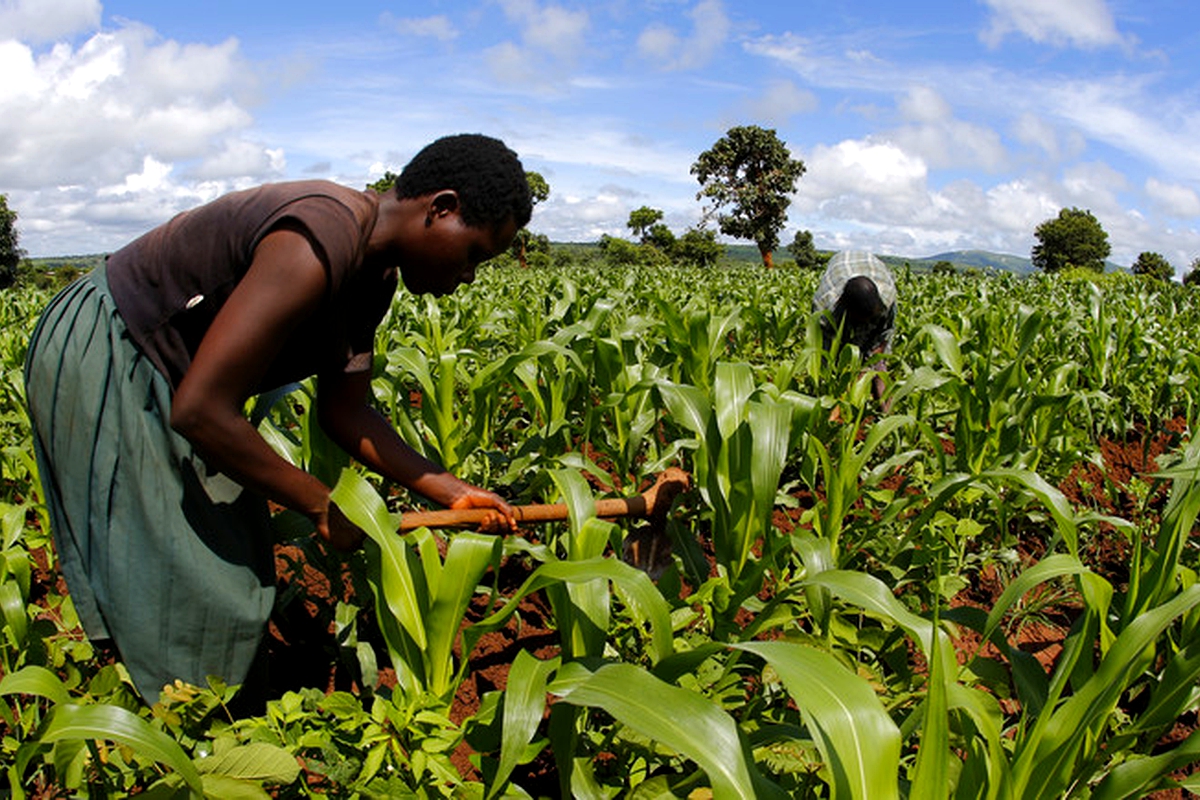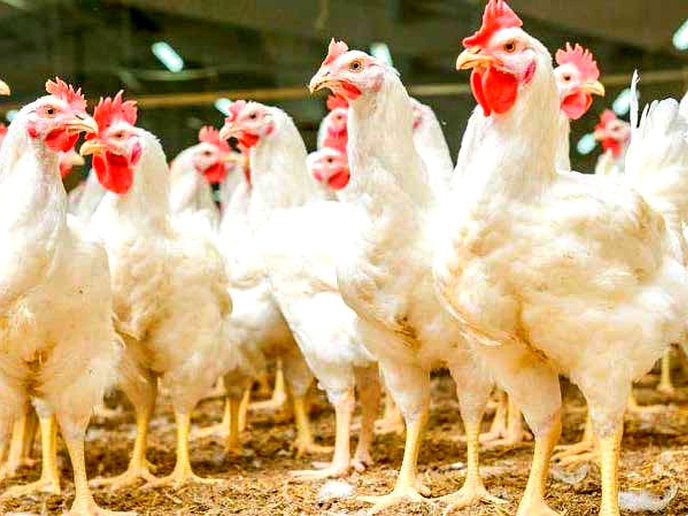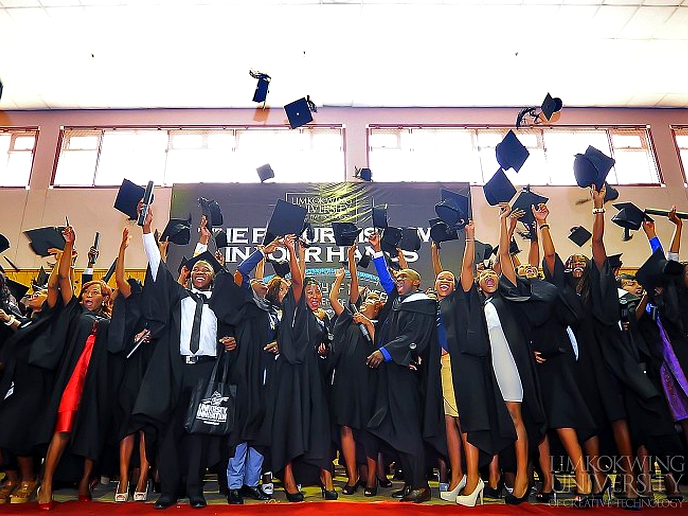An African woman with hoe in hand is the default symbol of agriculture in Africa, according to the late Calestous Juma, African academic and former Harvard Kennedy School professor. Juma used that image to convey the drudgery-filled farming that women on the continent face.
business
May 7, 2019
BUSANI BAFANA
8 min read
Transforming African agriculture through mechanization

Africa Fenewal reports that women grow 70% of Africa’s food on smallholder farms, a task anchored by physical labour. Now, with Africa’s population expected to double by 2050, the continent must ditch the hoe in favour of modern technology, which will complete the same tasks far more efficiently. A transformation from small-scale subsistence farms to mechanised, more commercially viable farms is essential, say experts at the Ghana-based African Centre for Economic Transformation.
Currently, mechanisation levels on farms across Africa are very low, with the number of tractors in sub-Saharan Africa ranging from 1.3 per
square kilometre in Rwanda to 43 per square kilometre in South Africa, compared with 128 per square kilometre in India and 116 per square kilometre in Brazil.
According to the Food and Agriculture Organisation (FAO), a UN specialized agency that champions efforts to defeat hunger, Africa overall
has less than two tractors per 1,000 hectares of cropland. This number is 10 tractors per 1,000 hectares in South Asia and Latin America. Without mechanized agriculture, productivity suffers drastically, lowering farmers’ earnings, notes the Alliance for a Green Revolution in Africa, an organization funded by the Bill & Melinda Gates and Rockefeller Foundations that seeks to promote agricultural transformation and improve food security in Africa.
Africa currently spends a whopping $35 billion annually on food imports, according to the African Development Bank (AfDB), which projects that if the current trend continues, food imports could rise to $110 billion by 2050. Africa should be the breadbasket of the world, says AfDB president Akinwumi Adesina.
“Technologies to achieve Africa’s green revolution exist but are mostly just sitting on the shelves. The challenge is a lack of supportive
policies to ensure that they are scaled up to reach millions of farmers,” Adesina adds.
The Maputo Declaration
African leaders in 2003 adopted the Maputo Declaration on Agriculture and Food Security, which requires countries to allocate at least
10% of public expenditure to agriculture with the goal of achieving 6% annual growth in the sector.
Yet 16 years later, only 13 countries have achieved at least 6% growth in the agricultural sector, stalling Africa’s dream of a food revolution. Those countries are Benin, Burundi, Cape Verde, Ethiopia, Gambia, Ghana, Liberia, Mali, Niger, Nigeria, Rwanda, Sierra Leone, and Togo. In addition to the Maputo Declaration, the Malabo Montpellier Panel (MMP), a group of African and international experts, recommended in 2014 that African countries develop national agricultural mechanization investment plans as a critical step to increasing productivity.
In a report in 2018 the MMP listed 12 African countries, including Ethiopia, Malawi, Mali, Morocco, Rwanda, Tanzania and Zambia as having demonstrated strong growth in mechanized agriculture and consequently achieved higher output.
Successful mechanization will be key to tackling major challenges on the continent, the report concludes, from spiraling food import
costs to rampant rural unemployment. The report recommends using public-private partnerships to develop local machinery industries to ensure affordable and appropriate technology is in use. It also recommends incentivizing the private sector to invest in mechanization through tax waivers and smart subsidies.
Finally, thanks to advances in renewable energy and digital technology, Africa can leapfrog the stages of technological development other
regions have had to undertake, making its mechanization process both swift and extremely lucrative, according to the report.
Dr. Katrin Glatzel, programme leader of the MMP, who is also a research fellow at the International Food Policy Research Institute, a
US-based food research organisation, points out that over half the fruits and vegetables produced in sub-Saharan Africa are lost, mostly because of inefficient postharvest handling and lack of processing equipment.
Mechanization, Glatzel posits, is not only for tilling land, it is also for planting, harvesting, processing and storage of produce.“Increased levels of mechanization will boost social and economic processes in both on-farm and off-farm roles in rural communities, through reducing drudgery of farm work and improving yields,” Glatzel tells Africa Renewal.
“Not only will mechanization result in increased employment,it will also improve land management and productivity as well as the quality of
the crops that are produced,” she adds. To achieve these goals, farmers in developing countries must spend more on fertilizer, seeds and agrochemicals, says the FAO.
Some laudable initiatives Some private sector initiatives have stepped into the breach created by unsuccessful state-and donor-led efforts to promote mechanization. In Nigeria, Hello Tractor, a technology start-up, is a quickly expanding Uber-like program that gives farmers temporary access to tractors on demand.
Enjoy our daily newsletter from today
Access exclusive newsletters, along with previews of new media releases.
Farmers can request a tractor via a text message to an agent, who aggregates requests. A tech platform pairs available tractors with
jobs, and then tracks each piece of equipment as it’s used. With a tractor, a field that might take 40 days to prepare for planting by hand can be prepped in eight hours. It’s also cheaper to rent a tractor than to hire farm workers, says Jehiel Oliver, the 35-year-old founder
of Hello Tractor. “It seems counterintuitive in these markets with relatively low cost of labour, but paying a human being to do this is still much more expensive than a tractor.”
Labour is also increasingly hard to find as more Nigerians move to cities and existing farmers get older. Using a tractor can help farmers
plant fields in time for rain. Because planting with a tractor is also more consistent than planting by hand, it can also improve yields.
In Zambia, Rent to Own, a nongovernmental organisation founded in 2010, leases equipment such as pumps, presses, tractors, shellers and bicycles to farmers.
One of the advantages of mechanised agriculture is that it can potentially attract youth to farms and put a dent in Africa’s high youth
unemployment, which accounts for about 60% of total unemployed. The example of Zimbabwe’s young agripreneurs is instructive. Three years ago, the International Maize and Wheat Improvement Center (CIMMYT) loaned Gift Chawara, Shepard Karwizi and Pinnot Karwizi a planter and a sheller with which they started a business.
Their company is now offering shelling and planting services to almost 150 family farms in Mwanga village, northwest of the capital Harare. They had graduated from an agricultural mechanization training programme managed by CIMMYT. Last season, the trio earned about $7,000 just from shelling over 300 tons of maize, according to CIMMYT.
But these young Zimbabweans could be outliers, asserts Frédéric Baudron, a senior systems agronomist at CIMMYT, who finds mechanization by smallholder famers in Zimbabwe still low.
CIMMYT’s mechanization training programme is implemented under the Farm Mechanization and Conservation Agriculture for Sustainable Intensification project and supported by the Australian Centre for International Agricultural Research. The project has benefitted over a hundred young people from Ethiopia, Kenya, Tanzania and Zimbabwe.
Such efforts, replicated across Africa, could push the frontiers of agricultural productivity. But governments need to increase investments in the sector. It’s time for Africa to rethink the hoe.
Gratitude can be foundation in providing the healthy acceptance if what is past. It roots both what is present today and what can grow into the future. We should not be surprised that the fall presents a time of thanksgiving. Humans have incorporated this into spiritual practices for thousands of years. Today neuroscience is the areas of the brain that create positive emotion, minimize stress and expand perspective,
listing disciplined acknowledgement verbally and meditation are all tools coaches may use to co-create and root the foundation that the client can stretch their growth, expand their lives and truly new avenues of living.
Thank you for what you do, your
desire to do and being part of this community. The struggle ends when gratitude
begins.
2019 PROPHETIC PREVIEW
In 2019, the Lord says, as I God created the world in six days and the seventh day God rested.This is the year and time for you to rest and plan for what you want to manifest in 2019. This is a year of patience and waiting. PSLM 27:14 wait on the Lord and be of good courage and He shall strengthen their heart, I say on the Lord. Do not be impatient and let worry have its place thee, for your work in this year should be that of spiritual seeds and new prayer life of greater praise and worship.
Instead meditate, travel, be introspective and examine the mistakes of the past. Focus on your skills, refine them and get more education. Money comes if we are willing to wait. This is not the time to push. This is a year of assessing and planning our future direction and you may wish to retreat and reflect on what you would like to do. this is a year for solitude, peace and wisdom. Do not force any issues or lose control. Avoid making major moves this year.
Work in the inner and outer home and at your current job. If possible, saith the Lord of Blessings. Focus on your skills, refine them and get more education. Feel a new sense of maturity and selfworth.move slowly with patience. Money comes if you are willing to wait. This is not the time to push. Fatigue is a sign to slow down and see how you balance your life. Relationships may not be easy if there is a conflict of
goals, but rework agreement rather than give in to impassion out bursts. Your patience and inner understanding will be tested freguently throughout this year.
Avoid making promises that you can not possibly fulfil. Much prayer, reading word of God and being in the father's presence will deepen the anoiting in your life, a year of contemplation, self awareness and spiritual atonement. Your spiritual side will receive insights, profound dreams, open visions and revelations that you may not have experienced before, your inner knowing will be spot on and these shall be a deeper hunger for the things of the spirit, saith the Lord. Now do not wait one more second because there is so much more that I need to tell you. You will know when to make career and business moves, when to sign important papers, love, romance and so much more
I serve, Love, Always
From Nthamaha J Mphale
Life Coach, Game Changer & author
contacts:+266 53535344/ 58816092
Email: njmphale@gmail.com
Tailored for you






